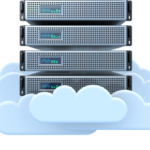
Choosing the Right Data Center Colocation
With businesses increasingly relying on technology infrastructure and data to power their operations, data center colocation has become a crucial decision for companies both large and small. In this post, we’ll explore what data center colocation entails, the key factors to consider when selecting a colocation provider, and practical tips for getting the most value from your colocation solution.
What is Data Center Colocation?
Data center colocation refers to renting physical space for servers and networking equipment within a third-party data center. Rather than building and maintaining their own on-site data center, companies can “colocate” their hardware in modular secure cages or cabinets within larger, shared data center facilities.
Colocating frees businesses from the challenges of locating suitable real estate, designing and constructing raised floors and power/cooling systems, and continuously operating and maintaining mission-critical infrastructure. Data center providers handle these responsibilities, allowing colocating organizations to focus on their core competencies.
Key Benefits of Colocation
- Lower upfront and ongoing costs compared to owning an on-premise data center
- Expert staff provides 24/7 physical security, monitoring, and hands-on support
- Access to redundant power and cooling systems, fire suppression, and backup generators
- Flexible lease terms and ability to quickly scale infrastructure as needs change
- Proximity to internet exchanges for improved network performance and connectivity
However, simply signing up for data center colocation is not enough – careful consideration of key selection criteria is paramount to achieving the full benefits.
Factors to Consider When Choosing a Colocation Provider
Location, Location, Location
The physical location of a data center is among the most important criteria. Proximity to your business locations and customer base reduces latency, while locations near internet backbone networks enhance connectivity. Consider data centers near major metro areas or along fiber routes for optimal performance.
Security and Compliance
Evaluate access controls, perimeter defenses, and internal compartmentalization protocols. Look for SSAE 18, ISO 27001, PCI DSS, and other industry certifications. Also consider providers with on-site security staff. Investigate compliance policies around data privacy, backups, and disaster recovery.
Cooling and Power Infrastructure
Assess the resiliency of power grids and backup generators. Look for redundant HVAC systems with N+1 configuration and monitoring of critical parameters like temperature, humidity, and airflow. Ask about PUE ratings and efficiency efforts.
Connectivity and Network Options
Investigate fiber routes and connectivity to cloud providers and internet exchanges. Study available bandwidth and port speeds. Consider providers with direct connections from multiple network providers for redundancy.
Support and SLAs
Compare support response SLAs, availability tiers, and service credits. Qualifications of data center staff also matter greatly. Consider providers with 24/7/365 support and dedicated account teams for your business.
Scalability and Flexibility
Consider future-proofing with providers offering scalable power, space, and bandwidth options. Look for flexible contract terms to avoid costly penalties for early termination or expansion. Modular equipment options allow scaling in small increments.
Tips for Maximizing Colocation Value
With the right provider in place, follow these tips to maximize the benefits of colocation:
Use Border Gateway Protocol (BGP)
Configure BGP routing between your networks and internet providers for more control over traffic flows and connectivity options.
Leverage Caching and Content Delivery Networks (CDNs)
Deploy caching servers at the edge through a CDN partner for faster content delivery to end users.
Implement Regular Maintenance Windows
Schedule quarterly maintenance to vacuum equipment and condensers, install firmware updates, and perform capacity planning.
Test Disaster Recovery Plans Regularly
Work with your provider to test backup generators, failover sites, and emergency response processes semi-annually.
Monitor Performance Metrics Closely
Leverage provided APIs and dashboards to track usage, temperatures, power loads, and SLAs to proactively address issues.
Add Redundant Components Strategically
Deploy redundant internet connections, power supplies, firewalls, and storage arrays to boost resilience against outages.
By optimizing hardware, networks, and operations through these best practices, colocating organizations can extract maximum value from their infrastructure investment over the long term. With proactive management, data center colocation remains a highly cost-effective solution for businesses of all sizes.
By weighing these key factors, businesses can select a colocation provider aligned with both current and long-term technical and operational needs. With careful planning and diligent research, data center colocation can deliver immense value.
